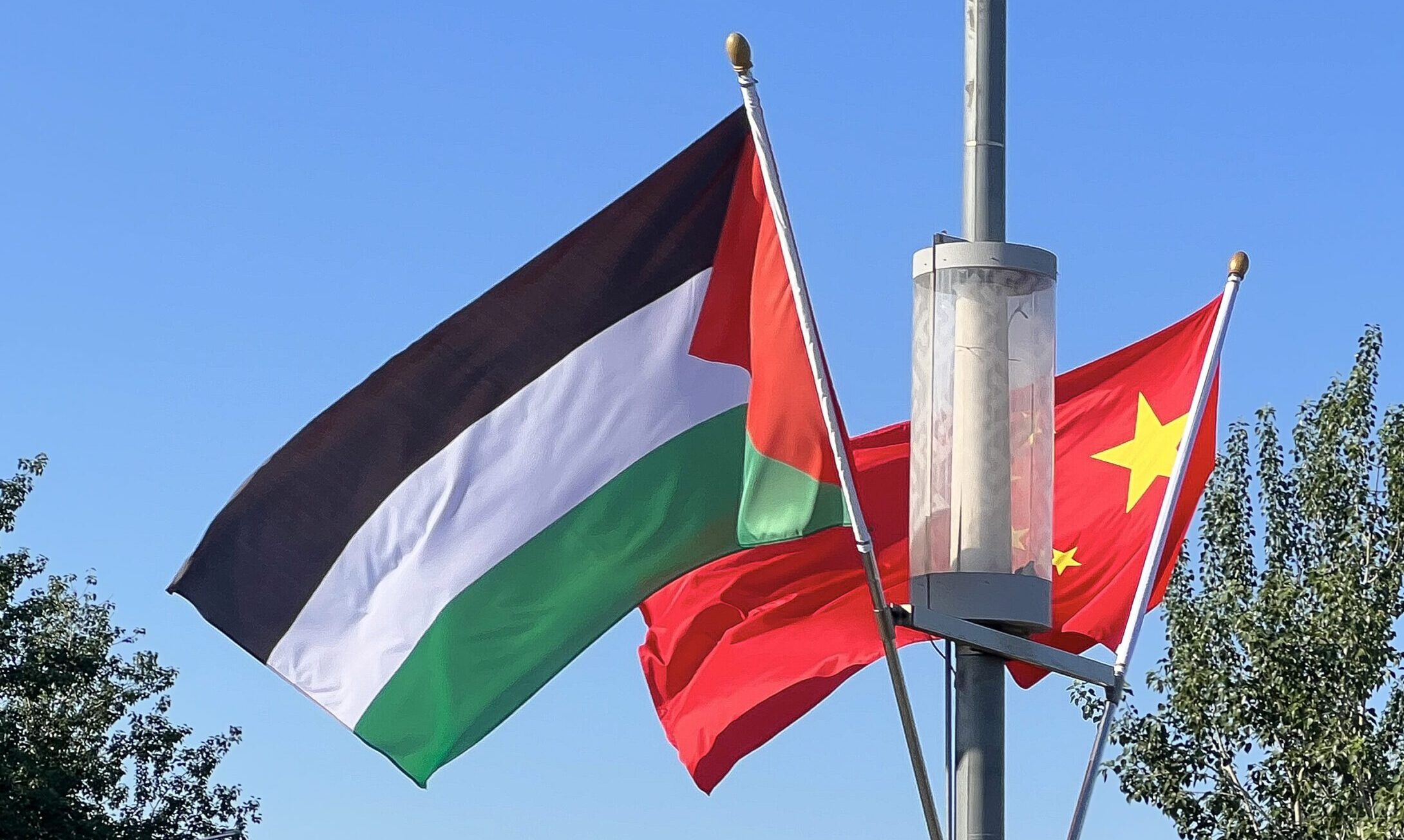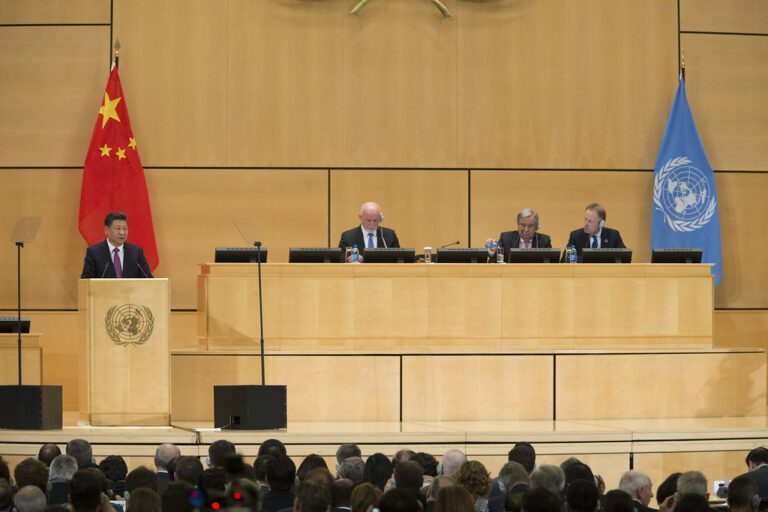
On July 23, the news broke that Hamas, Fatah and twelve other Palestinian factions signed a joint agreement in Beijing (i.e., the Beijing Declaration) to form a unity government that would oversee the Palestinian territories of the West Bank and Gaza. Whereas the involved parties have hailed the agreement as a first step in ending the Israel-Hamas war, most Western analysts have expressed doubts about the deal’s feasibility.
This is not only because the deal lacks concrete steps toward the implementation of its stated objectives, but also because it is not entirely clear what sets it apart from several other agreements signed between the two main factions since Hamas expelled Fatah from Gaza in 2007. Moreover, the Chinese deal’s win-win narrative does not seem to match the zero-sum realities on the ground, such as the fundamental disagreements between the two parties, whether in terms of their attitudes towards Israel or tactics to achieve Palestinian statehood, which have prevented the successful implementation of previous agreements. Adding to this the lack of consideration for Israel, which has already denounced the deal, the deal’s inability to bring about substantive outcomes for any of its involved parties becomes clear.
At the same time, it may also be argued that the short-term delivery of substantive outcomes is not the agreement’s real purpose – at least as far as China is concerned. Instead, the deal’s win-win narrative should be seen as an essential part of China’s discursive strategy for a new world order that would displace the current neoliberal one, built on the normative values of the US and its allies. It is through the lens of discourse power, alongside its long-standing principle of non-interference and focus on the Global South, that Beijing’s narratives (e.g., about “win-win cooperation” and “true multilateralism”) can be seen as creating an alternative to those of the Global North.
On a more substantive level, Beijing’s interests in the Israel-Hamas war have been defined by its great power rivalry with the US and the broader geopolitical context. This, once added to China’s long-term geo-strategic goals, can explain Beijing’s shift from purely economic to broader (albeit limited) political and security interests, and from a strategy of balancing to a more explicit pro-Palestine position.
Beyond Economics and Balance
With China being a net importer of oil, China’s relations with the Middle East have long been defined by the Belt and Road Initiative (BRI) and its energy imports. Indeed, Saudi Arabia was China’s main oil supplier until this year, when it was overtaken by Russia. To protect these interests, Beijing has long pursued a strategy of balancing between the region’s adversaries (e.g., Iran and Saudi Arabia, or Israel and Palestine). This has allowed China to strengthen its economic relations with Israel, dominated by technological exchanges (as guided by the Innovative Comprehensive Partnership from 2017), while continuing to pursue its historical ties with Palestine dating back to the Mao Zedong era. And, although China has long advocated for the Palestinian cause on the international stage, as seen in its rhetoric and voting at the UN Security Council, it has abstained from (explicitly) taking a side in the conflict.
This changed after October 7, when China failed to condemn the attacks by Hamas, leading to a worsening of its relations with Israel (at least on the diplomatic front). Yet, it is important to note that Sino-Israeli relations have been on a downward trajectory since the 2018 peak in trade and investments between the two, arguably due to China’s worsening perception of Israel’s status as an innovative power. At the same time, China has been increasingly explicit in its (rhetorical) support for Palestine, emphasizing the two-state solution and blaming Israel for its inaction in this matter. China’s position on the Israel-Hamas conflict can thus be compared to its position on the Russian war in Ukraine, with Beijing continuing to claim neutrality while supporting Palestine, and its overall strategic calculus influenced by its rivalry with the US.
Similarly to China’s relations with Israel, China’s strategy in the Middle East has evolved significantly over the last couple of years to encompass more political and security aspects, and at least a part of the impetus for this came from changes in the broader international environment. There are, however, limits to these relations. For example, although the PLA opened its first overseas military base in Djibouti in 2017, the security relations between Beijing and the regional powers continue being dominated by cooperation in non-traditional security areas, such as anti-piracy, peacekeeping, and conflict resolution.
Going back to Gaza, it is the area of conflict resolution that interests China the most, as it arguably offers the greatest opportunity to increase its discourse power by promoting an alternative vision of a new world order. Here, Beijing can build on its success in brokering an agreement on restoring diplomatic relations between Tehran and Riyadh in March 2023. Therefore, in the same way China managed to capitalize on the (perceived) US retrenchment from the region following Obama’s Pivot to Asia by broadening its relations with the regional powers into new domains, the Israel-Hamas conflict and the US alignment with Israel can be seen as a new opportunity for China to further increase its discourse power in the region.
The Long Game Ahead
China’s strategic goals have long had both discursive and substantive elements. However, what has become clear over the last couple of years is that Beijing is increasingly willing to sacrifice its short-term interests in pursuit of long-term strategic goals. This is applicable to both its foreign and domestic policies. Indeed, the messaging that has been coming out of Beijing, including during the recently held Third Plenum, has confirmed that political concerns trump economic ones under Xi. This explains why China may be more willing to tolerate a certain amount of economic losses (such as those caused by Houthi attacks on the Red Sea shipping lanes) in pursuit of a new world order, on one hand, and its global image as a reliable great power (e.g., in conflict facilitation or mediation) and defender of the weak (i.e., countries in the Global South), on the other.
Although the criticism by Western analysts that China’s real power does not match its willpower in the Middle East may be valid, we should all remember that China is playing a long game. The increasing number of alternative political, economic and security frameworks developed by China in the Middle East provide Beijing with mounting opportunities to turn its words into deeds.
Written by
Dominika Remžová
DominikaRemzovaDominika Remžová is a China Analyst at AMO, specializing in Chinese economy and industrial policy, supply chains, critical raw materials, electric vehicles and, more generally, Chinese foreign policy. In the past, she contributed to Taiwan Insight and The Diplomat, among others. Dominika is pursuing her PhD in Political Science and International Relations at the University of Nottingham. She earned her Master's degree in Taiwan Studies from the School of Oriental and African Studies (SOAS) in London and her Bachelor's degree in Chinese Studies from the University of Manchester.


